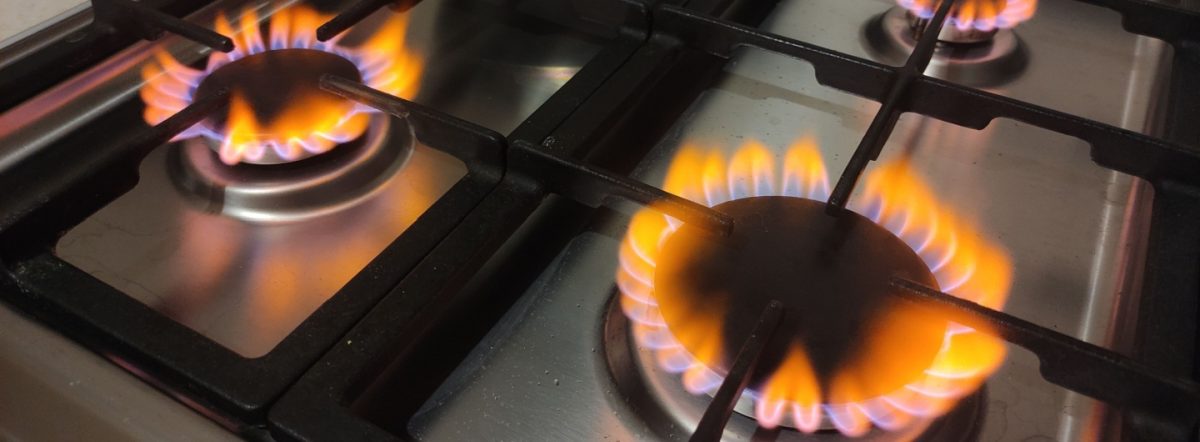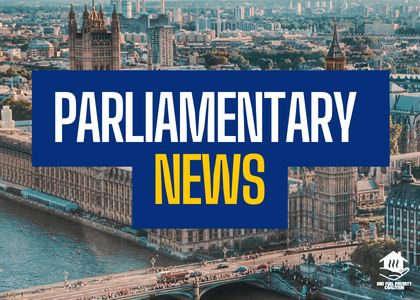The Government’s Autumn Budget will bring a modest reduction in energy bills next spring, but fuel poverty campaigners warn that a real terms cut in wider efficiency funding risks locking millions of people into cold, damp homes for years to come.
End Fuel Poverty Coalition (EFPC) initial analysis suggests the average annual energy bill will fall to around £1,665 from 1 April 2026, down from £1,755 today. That compares with £1,042 in January 2021, before the energy crisis, and £1,568 in July 2024, showing bills remain far above pre-crisis levels.
However, the Chancellor again failed to set out a plan to introduce a social tariff which would provide a discount on bills to those households who most need support with energy costs, including those with disabilities and health needs which rely on energy use. Campaigners have also expressed concern about the cumulative impact of potential tax rises which they fear could outweigh the savings elsewhere for households.
EFPC coordinator Simon Francis said any reduction in bills was welcome, but warned that the Budget falls far short of what is needed to end fuel poverty:
“Any reduction in energy bills will be welcome as households face their fifth winter of the energy costs crisis and the Government is right to be investing in the Warm Homes Plan to help improve the energy efficiency of peoples’ homes.
“But no one can warm their home with Budget headlines, and the Chancellor’s statement also highlights the scale of the challenge.
“Even with the changes announced, we expect that from April 2026, average energy bills will still be hundreds of pounds higher than they were in winter 2020/2021 and £97 higher than at the General Election.
“The millions of households who will still be struggling with the cost of energy need further bold action from the Government in reform of energy pricing, targeting energy bill support at those who need it, delivering on a new fuel poverty strategy and in creating an ambitious Warm Homes Plan to upgrade cold, damp homes.
“And we’d also urge the Chancellor to address a c.25% projected shortfall in total energy efficiency funding in future Budgets after the ECO scheme is scrapped.”
Scrapping ECO “blows a huge hole” in fuel poverty plans
Alongside the modest bill cut, the Budget confirmed that the Energy Company Obligation (ECO) – the UK’s only national fuel poverty scheme outside the social housing sector – will end next April, with no full replacement programme yet announced.
And although the Chancellor increased the Warm Homes Plan budget to almost £15bn to partially compensate for this, fuel poverty charity National Energy Action (NEA) warned this leaves the UK without a credible plan to end fuel poverty.
Chief Executive Adam Scorer said the Budget “has blown a huge hole” in government strategy:
“Despite the welcome news that the two-child benefit cap is being scrapped and £150 lifted from energy bills, the Budget has blown a huge hole in the government’s strategy to tackle fuel poverty.
“By scrapping the ECO scheme with no successor and no Warm Homes Plan yet in sight, the Treasury has removed the only national scheme focused on fuel poor homes, outside of the social housing sector… Without large-scale retrofit of our leaky homes, there is simply no route to ending fuel poverty in the long term.”
Environmental think tank E3G also warned that ending ECO will hurt both families and jobs. Senior Researcher James Dyson said that:
“It will also cost 10,000 jobs and prevent 1 million families from insulating their homes in the next 4 years. The Chancellor must reverse this cut and reform the scheme to maximise energy savings for the fuel poor.”
Fuel Poverty Action’s Jonathan Bean also highlighted that work to repair botched retrofit still left households in need of help:
“The small reduction in electricity pricing still leaves it four times more expensive than gas. This makes electric heating unaffordable, and risks the health and lives of over a million vulnerable people.
“Instead of announcing emergency funds to fix homes damaged by botched retrofit work, the Government has cut budgets. Victims are being left suffering in dangerously cold, damp and mouldy homes this winter.”
Groundwork, a national charity supporting those suffering the worst effects of fuel poverty through their network of ‘Green Doctor’ energy advisers, warned the need for targeted support for those who need it most remains, regardless of the promise of lower fuel bills.
Groundwork national Chief Executive Graham Duxbury said: “Despite the welcome news of cuts to fuel bills announced by the Chancellor, there will still be an urgent need to ensure those who live in the coldest, dampest homes, or who already have significant levels of energy debt, get the targeted help and support they so desperately need. Now that the Chancellor has scrapped the ECO scheme, it is all the more important that the new Warm Homes Plan prioritises support to vulnerable customers.”
Fair By Design, which campaigns to end the “poverty premium” in essential services, used a reaction thread on X to highlight that the Budget does little to fix structural unfairness in energy pricing, and reiterated its calls for targeted bill support and fairer standing charges for those on low incomes.
Older people: “Budget should have been time to address pensioner poverty”
Older people’s organisations said the Budget was a missed opportunity to tackle pensioner poverty and the specific risks older people face from high energy costs.
Caroline Abrahams, Charity Director at Age UK, warned that the freeze on income tax personal allowances for a further three years will “drag more older people into paying income tax”, including some on low and modest incomes, at a time when prices for essentials are constantly rising. While she welcomed continuation of the Triple Lock and exploratory moves to simplify tax processes for older people on the State Pension, she said:
“Energy bills are a huge worry for many older people and so any additional help from the Government is very welcome. However, we note that the decision announced today of reducing energy costs by £150 next April will coincide with the planned abandonment of the Energy Company Obligation (ECO) programme, forcing the Warm Homes Plan to stretch its budget much further than intended.
“Looking at the overall impact of all these measures in the round leads us to the view that the Government should be doing more to help with energy costs – which will still be higher than when they entered power in 2024. There was also no more money for the Crisis and Resilience Fund at a time when we’re hearing from lots of desperate older people who will be facing another tough winter.”
Independent Age Chief Executive Joanna Elson CBE said the Government had “missed an opportunity” to address pensioner poverty, which affects almost two million older people:
“While we welcome the continuation of the Triple Lock, this alone does not go far enough in supporting older people on the lowest incomes who are not washing to save on water, seeking out warmth in public places and limiting themselves to just one small meal a day.
“We continue to urge the UK Government to increase the Warm Home Discount, support older private renters by uprating Local Housing Allowance so no one has to make dangerous sacrifices to pay their rent, and boost income through a comprehensive entitlement take-up strategy.
“Our research shows that without decisive government intervention, pensioner poverty could almost double by 2040. Worryingly, nothing in this Budget suggests we are steering away from this alarming trajectory.”
Children’s organisations hail “momentous” decision on Two-Child Limit
One of the most widely welcomed announcements in the Budget was the decision to scrap the Two-Child Limit to benefit payments.
The End Child Poverty Coalition called it “momentous news”:
“This is momentous news for the 350,000 children who will be lifted out of poverty by this change to policy and the 700,000 more who will be in less deep poverty. It is these children for whom life will hopefully feel a little easier, who may be able to dream a little bigger, and feel less different to their peers as a result.”
Moazzam Malik, CEO of Save the Children UK said that it was “the single most powerful step to reduce child poverty in a generation.”:
“Every child deserves a childhood free of poverty. For too long, children have been penalised by this pernicious policy, through no fault of their own. This announcement sends a clear signal that all our children’s lives are valued regardless of the circumstances of their birth and that the UK Government is committed to giving every child the best start in life. This is a moment of hope for hard up families.”
Campaigners stressed, however, that while this change will significantly reduce income poverty for many families, those benefits need to be matched with action to ensure homes are warm, safe and affordable to heat. Malik added: “We look forward to working with the UK Government to build on this announcement and the forthcoming child poverty strategy to tackle issues that hold too many families back.”
Health: budget relief welcomed, but warnings over worsening illness and unmet care needs
Health, disability and social care organisations warned that the Autumn Budget fails to address the deep and growing links between fuel poverty, poor health and rising pressure on frontline services.
Marie Curie said that while additional NHS funding and plans for new Neighbourhood Health Centres were welcome, terminally ill people remain overlooked. Toby North, Head of Public Affairs England at the charity, said:
“People facing terminal illness are overlooked time and time again by politicians and policy makers, leaving too many dying in avoidable pain, poverty and alone.
“We welcome more investment for the NHS, plans for 250 new Neighbourhood Health Centres across England, and a potential £150 average reduction in household energy bills. But more needs to be done specifically to support dying people.
“The UK Government must ensure NHS funding reaches services that support dying people. Palliative and end of life care has to be at the centre of plans for neighbourhood health services, and we urgently need more targeted support to protect terminally ill people from spiralling energy bills and poverty at the end of life.”
Disability Rights UK struck a far sharper tone, warning that political decisions are actively making people more ill. Responding to the Budget, the organisation said the country is now “living in an era of sickness caused by political choices”, driven by low incomes, insecure housing, high energy and food costs, and overstretched health and care services.
The organisation warned that disabled people already make up three-quarters of food bank users, and said the Budget offered nothing meaningful to address the causes of rising ill health. It criticised the continued rationing of schemes such as Access to Work, changes to Motability, and further reforms to disability benefits, arguing these measures place the burden on disabled people rather than addressing systemic barriers in workplaces, transport and public services.
Disability Rights UK said that while the abolition of the two-child benefit cap was long overdue, this alone was “a drop in the ocean” given the wider lack of investment in social care, housing and healthcare, adding that the Budget risks deepening hardship and worsening health outcomes for disabled people.
Concerns were also raised by the Social Workers Union (SWU), which warned that the absence of new funding for social care will intensify existing pressures across the system. SWU General Secretary John McGowan said:
“I welcome a number of poverty-reducing measures in the Autumn Budget, including the removal of the two-child benefit cap, but I am profoundly disappointed by the omission of social care.
“No additional funding for social care means a sector already cut to the bone by austerity will be further stretched and expected to absorb additional costs. Chronic underfunding continues to impact social workers and the people we support, leaving us to shoulder rising pressures.”
McGowan called on the Government to invest in social care urgently and to use the Casey Commission to deliver meaningful reform to adult social care in England, warning that delaying action yet again risks destabilising the entire care system.
Together, organisations said the Budget underlines a growing disconnect between measures aimed at easing short-term costs and the failure to address the health consequences of cold homes, low incomes and inadequate care. They warned that without targeted support for people with serious illness, disabled people and those relying on social care, pressures on the NHS and social services will continue to grow — with avoidable human and economic costs.
Housing sector: Warm Homes Plan must now deliver
The housing sector welcomed emergency action on bills but warned that cutting or repurposing energy efficiency funds could undermine long-term progress.
Gavin Smart, Chief Executive at the Chartered Institute of Housing, said:
“We welcome the Chancellor’s recognition that direct action was needed to reduce bills after years of persistently high costs that have forced many into impossible choices. However, cutting billions of pounds previously allocated to making homes permanently warmer risks weakening the long-term solution to fuel poverty and putting supply chains and jobs at risk.
“We now need the government to publish its Warm Homes Plan, setting out how the £14.7 billion in capital funding will be allocated, confirming future energy efficiency standards in both rented sectors, and taking further steps to make clean heating more affordable.”
Scotland: funding squeeze
In Scotland, the real terms reduction in the funding available for vital energy efficiency measures will be felt most heavily. Energy Action Scotland Chief Executive Frazer Scott used a post on X to underline that the Budget has not shifted the dial on affordable energy and highlighted specific concerns about the end of ECO funding:
“Energy Company Obligation going reduces spending in Scotland by £400-500million to 2030 on energy efficiency improvements. Something like 25,000 homes. No mitigation for this loss.”
The End Fuel Poverty Coalition spokesperson added that they would urge the Chancellor to address this with receipts from the Windfall Tax:
“The Chancellor was right to maintain the Energy Profits Levy and then reform it after the current period ends. Given tax rises elsewhere in the budget, it would have been perverse to have then handed a tax break to companies that have already made extraordinary profits during the crisis. But we now need to see the energy efficiency shortfall in Scotland and Wales addressed.”










